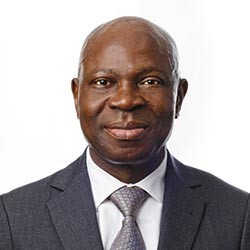Opening remarks by Gilbert Houngbo, President of IFAD, at the WEF Country Leadership Roundtable
IFAD Asset Request Portlet
Agrégateur de contenus
Opening remarks by Gilbert Houngbo, President of IFAD, at the WEF Country Leadership Roundtable
Où: Online
01 juillet 2021Your Excellency President Quesada,
Distinguished ministers,
Colleagues,
Ladies and gentlemen,
Transforming our food systems so that they benefit the poor and marginalized is more pressing now than ever. It’s a challenge we will only meet by working together.
This requires bringing together governments, businesses, international organizations, civil society and farmers’ organizations.
Collectively, we need to push forward multi-stakeholder solutions to address food systems challenges.
It also requires tackling various dimensions of food systems to avoid a fragmented approach.
Small-scale agriculture is a business, and poor farmers need what other business women and men need—access to credit and markets, technology, innovation, and know-how.
Successful small agribusinesses generate jobs, revitalize rural economies and communities—and can lead the way toward stronger and more inclusive and sustainable food systems.
The Southern African Confederation of Agricultural Unions (or SACAU pronounced sa-cow) initiative is a good example of what I’m talking about, which we will hear about later on. It aims to promote an inclusive, globally competitive poultry sector by improving regional trade, feed availability, and consumer awareness, focusing on 12 countries. We as IFAD are proud to be part of this initiative, and not only do we want make this a successful project, but also an example of how collective action leads to higher results.
The Food Action Alliance is another example of a global network of partners and stakeholders coming together to foster food systems transformation. Its potential is significant.
As the Food Systems Pre-summit nears, we are already aware of how important it will be to come out of the main summit in the fall with concrete and coordinated actions to follow through.
One thing is for sure, and that is that collaboration has to involve multiple sectors and be inclusive of its main actors. And in the case of food systems the main actors are the small producers themselves.
Initiatives must be globally backed and locally owned.
We should commit to investing in the rural communities where small producers live and also in ensuring that they are a leading voice in shaping solutions.
I hope that the discussions today will be a significant contribution to deliver bold actions for the future of food systems.
Thank you.
